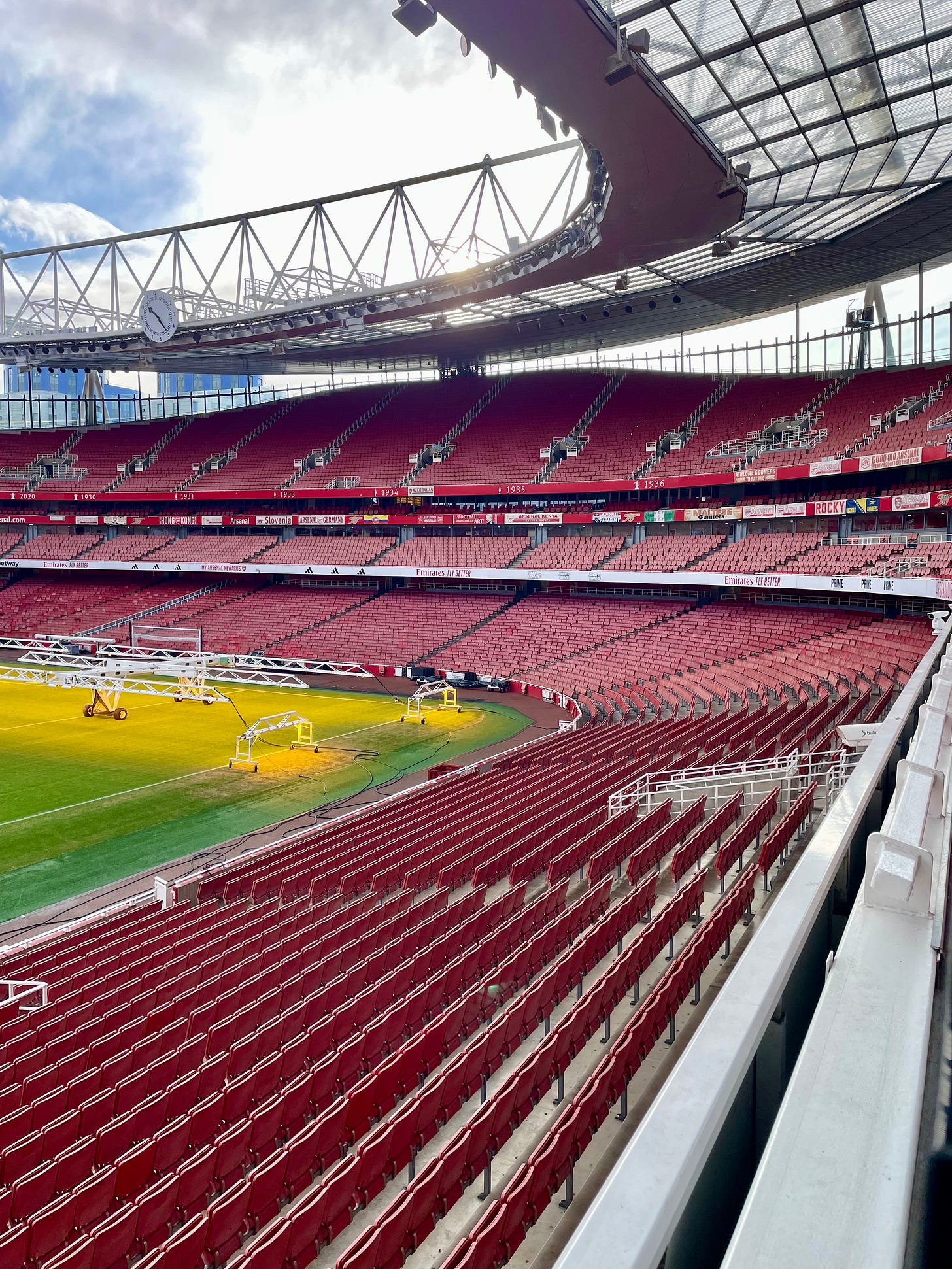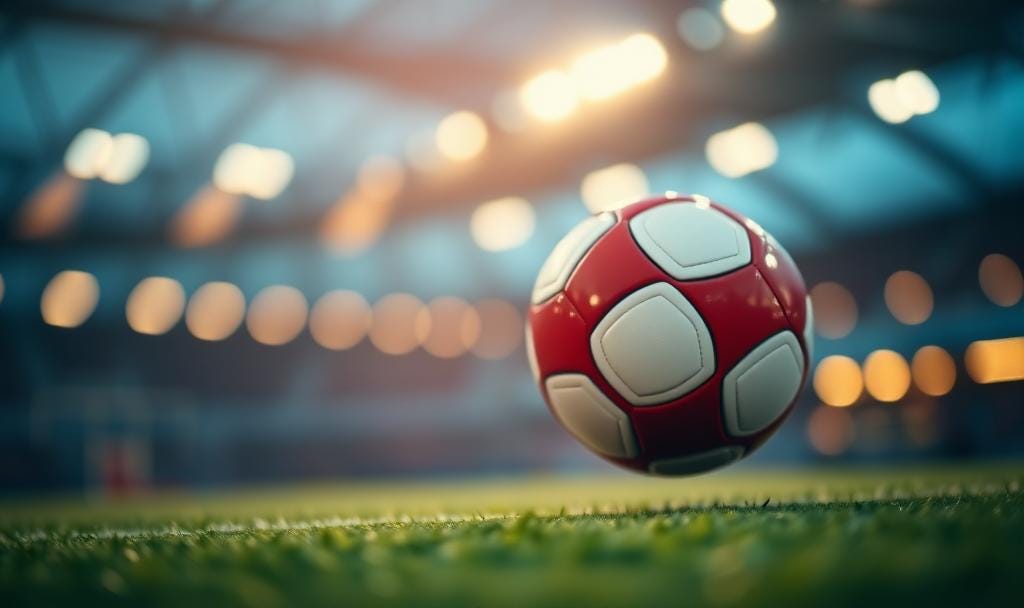It’s a game that’s been played in some shape by many different cultures from the Mayans to the Chinese, but the modern version of football owes much to medieval English games played by parishes during religious festivals. A twelfth century cleric once wrote that “older citizens, fathers, and wealthy come on horseback to watch their juniors competing, and to relive their own youth vicariously: you can see their inner passions aroused as they watch the action and get caught up in the fun being had by the carefree adolescents.” Not much has changed then when one enters the twenty-first century stadium. The humming anticipation of the crowd, the raucous chants, the stink of stale ale and fried food are part of the nostalgia each generation seeks to bequeath to the next.
And yet, football has never functioned in a vacuum. From the advent of female English players in the 16th century, to its popularity in British public schools as a means of exercising, the sport has adapted and reformed itself according to societal changes. The advent of train transportation brought on inter-collegiate tournaments. The invention of the lawnmower introduced modern grass courts. The patenting of vulcanized rubber launched the use of non-animal skin balls. Even Shakespeare got in on the act, mentioning the game not only in King Lear but also in a Comedy of Errors, forever entwining the caprices of love with the humors of the game.
However, for as long as it has been popular, football has held a contentious space in our communities. Repeatedly banned by monarchs, in the 15th century a French bishop declaimed, “these dangerous and pernicious games must be prohibited because of hatred, grudges and enmities which, under the veil of recreational fun, accumulate in many hearts.” A vehicle of tribalism, a stage for violence, football has held up the pursuit of endurance as godly, fostering a madness of cynical fanaticism and an insatiable hunger to be tied to the fortunes of the sport. In the modern era football continues to be inured to racism and misogyny, divulging extraordinary accounts of financial corruption amongst teams and the countries hosting them. As in any professional sports, money remains the impetus operating dreams of glory and fame.
Given such stakes, is it any wonder football remains one of the most beloved sports around the planet? It’s a dream of so many children playing in abandoned dirt fields to become the next renowned footballer, more famous and influential than most world rulers. Towns pin their hopes to their local squad winning all the awards and being promoted to a higher status. Nations vie to spend millions on new stadiums. And certain unfortunate human traits are ingrained in football. The yearning for belonging rears its ugly head in conformity police and schadenfreude. Our desire for excellence leads to unrealistic pressure put upon athletes and managers. Our propensity to equate our best selves through the prosperity of those we admire advocates hedonism and ego-driven actions.
Despite knowing all this, experiencing much of the bad behavior over the years, you can still find me jumping up and down in the stands at football matches. It’s a love-hate relationship. Football encompasses so much nuance and human complexity, it keeps me enthralled. In what other sport are the rules of the game so arbitrary and confusing? Where else can you see the tension between a player’s self-confidence and their self-conceit? Just as in life, hard work and persistence don’t guarantee wins. Neither does throwing cash at the problem. Perfection is much sought after but rarely achieved. Consistency is the name of the game. And the standards of success are constantly shifting.
Football truly is a reflection of our multifaceted strengths and flaws. For many impoverished young, it has allowed social mobility, and through the right mentors taught them to be the best versions of themselves. It is an opportunity to forge connections and develop community. It can also be the ultimate zero-sum game. For some football embodies the hopes and dreams of the future. For others, it is this very hope that betrays them. The battle between whether football is beneficial or a scourge upon society was hotly debated from the 14th century and continues each new season. Back in the medieval age, the English argued about the role of brutality in the game, about the exigency of paying players, and about systemizing on-and-off-pitch behaviors. As we contend with technology’s role in our lives, our increasing isolationism, and the climate crisis, these discussions also insinuate themselves into the sport. In the meantime, you’ll find me ensconced on a weekend eagerly glued to the fluid, beautiful possibilities of eleven versus eleven, rain or shine.
Bespoke Traveler Note:
Do the benefits of professional sports outweigh its negative impacts on society? Let me know your thoughts in the comments.
Thank you for listening. “In the Stands” was written and narrated by Atreyee Gupta. For more details, head to the website at www.bespoketraveler.com.



















Share this post